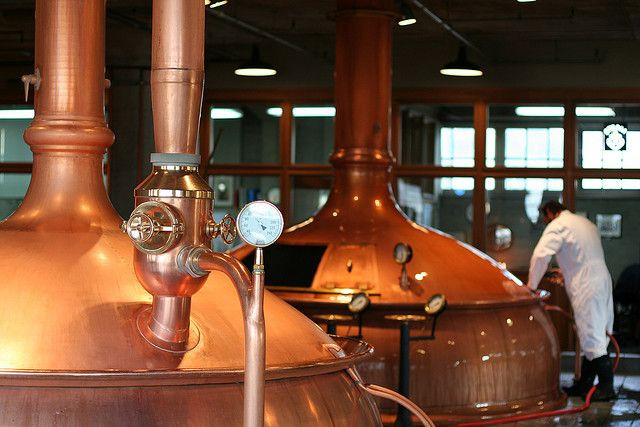Coming Soon: A 'Beer Factory' For Healthy Omega-3 Oils That May Curb Overfishing

Scientists from the biochemical company DuPont have created a strain of yeast that can produce abundant amounts of omega-3 oils, a dietary supplement most commonly found in fish. According to their study in the journal Nature Biotechnology, the genetically-modified yeast could be the solution for a global overfishing crisis that has arisen due to the growing popularity of the supplement.
Omega-3 oils are extolled for their reported health benefits that range from lowering the risk of heart disease to improving mental conditions like depression and Alzheimer's disease. This has led to a huge boom in the demand for the supplements. In 2010, Time magazine described how the market for omega-3 oils had doubled to $1 billion in just 4 years.
Environmentalists are worried that this health craze has placed tremendous pressure on marine ecosystems as fishermen attempt to cash in and as aquaculturists establish new fish farms. Wild species of deep sea sharks are being aggressively hunted, as their livers are packed with omega-3 oils.
DuPont's new strain of genetically-modified yeast could solve this problem. It was created by swapping genes in and out of a naturally occurring species of yeast — Yarrowia lipolytica — that is often found in cheeses and sausage. In total 21 genes were added and one, known as PEX10, was removed, with the latter being critical to boosting omega oil production in the microorganism.
Their new strain is now technically the best source of omega-3 oils on the planet, generating with about 15 percent of its dry cell weight being comprised of the nutrient.
"Through metabolic engineering, we have generated a Y. lipolytica strain, Y4305, that makes land-based commercial production of EPA possible," wrote the authors who were led by Dr. Quinn Zhu, a biotech researcher at DuPont.
One day warehouses may hold giant vats of the yeast, like with a beer brewery, that pumps out huge quanitites of the oils. Another option involves using the yeast as fishfood for salmon farms, which would yield omega-enriched fish for the dinner table. The yeast-borne lipids are already being sold as a vegan alternative to fish-extracted oils.
Source: Xue Z1, Sharpe PL, Hong SP et al. Production of omega-3 eicosapentaenoic acid by metabolic engineering of Yarrowia lipolytica. Nature Biotechnology. 2013.
Published by Medicaldaily.com



























